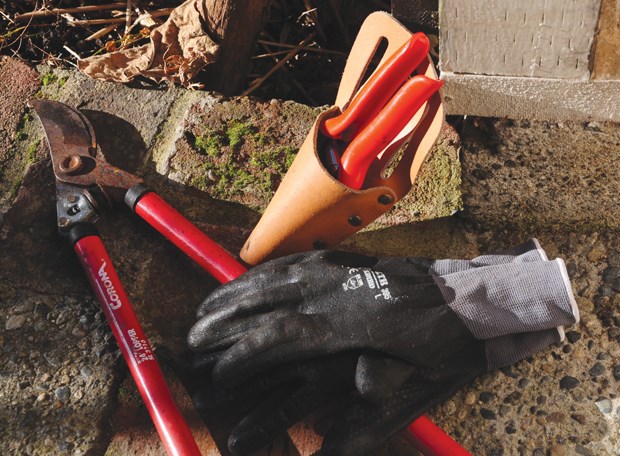Welcome to a new year bursting with new ideas and new gardening trends for 2015.
Change is subtle and ongoing in my garden, and I rarely make significant alterations. I am considering removing the last bastion of lawn in my garden and replacing it with a pond or something else. But that idea is stewing in my subconscious for the moment. It is important to be open to new ideas in the garden. Some ideas just simply won't work, others are too expensive. But many ideas can be modified and adapted to suit your own needs. So with those thoughts in mind, here are some garden trends for 2015 to consider.
From the Garden Media Group website, gardenmediagroup.com, comes their 2015 Garden Trends Report. The report revealed a 2014 global survey of 30,000 consumers by Accenture Havas Media that found 72 per cent of respondents stating businesses are, "Failing to take care of the planet and society as a whole." This revelation puts a spotlight on the companies selling garden plants, products and services. Susan McCoy of Garden Media discussed the issue by saying, "Brands are being held to higher standards, as customers demand that products are not only reliable but have a positive impact on the planet." Some people may believe that the gardening and nursery industries are among the greenest on the planet. Those industries are green but there are real issues facing the sector such as agricultural and residential pesticide poisoning of Mother Earth, water use, fertilizer contamination of oceans and recycling of industry materials, especially plastic plant pots. There are no easy or cheap fixes for those problems, each of us will have to make moral choices to solve those issues. Only the consumer can force the change needed to enhance the environment's health, which is directly tied to our children's health. McCoy highlighted the consumer's increasing focus on health and wellness by saying, "People aren't just gardening for beauty, they are gardening to nourish their communities, the environment and their own well being. And they want brands to help them do it."
Some trends are a matter of government policy change, such as the Government of British Columbia's proposed amendments to the Integrated Pest Management Regulation. The changes will impact both vendors (retailers) and users (applicators and homeowners). Among the changes, a pesticide applicator's license will now be required to spray pesticides on private land, except for products in Schedule 5 that are exempt for unlicensed consumer use. The list of those exempted products will be developed soon.
Another change will require resident notification before pesticides are sprayed on private landscaped areas. Businesses selling Schedule 5 or "consumer use" pesticides will now require a vendor license to sell those products. Under the amendments pesticide products will now be stored so that customers can't access them directly. And the herbicide glyphosate will now only be permitted for use without license on listed noxious weeds.
The government has stated that the new regulations will come into effect in fall 2015 but that timeline may be pushed back to allow industry to adjust to the new regulations.
From Canadian marketing research firms Marcon and Zaunscherb Roberts Blair Inc., a report entitled "Boomer consumers are changing" explains how the baby boomers are changing their spending habits. Boomers were born between 1945 and 1965, putting them between the ages of 48 and 68 years old. Canadian boomers built the Canadian horticulture industry over the past quarter century by making gardening one of Canada's most popular hobbies.
Times are changing though; many boomers are not the debt-free retirees they thought they would be. Inflation, college tuition for the kids, longer life spans and the exponential rise in housing costs have left many boomers looking at their financial options more closely. The report stated that demand for condominiums and town homes will continue to rise as children seek the only affordable way to enter the real estate market and parents look to downsize. Smaller homes mean smaller gardens requiring new products tailored to match. The report also highlighted that boomers are more likely to build or renovate outdoor living spaces for family entertainment than other demographic groups.
There are so many trends in society, art, music and pop culture that it's hard to include them all here. Perhaps the most transformational trend is urban farming. The realization that healthy people need healthy food to eat is changing the way our food is being grown. People are refusing to buy or eat GMO food.
Foods grown with pesticides are being avoided in favour of organically grown. And industrial farming methods secretly caught on film showing inhumane treatment of farm animals living in deplorable conditions have awakened peoples' desire to change the industrial food system to become healthier and more sustainable.
Todd Major is a journeyman horticulturist, garden designer and builder, teacher and organic advocate. [email protected]



